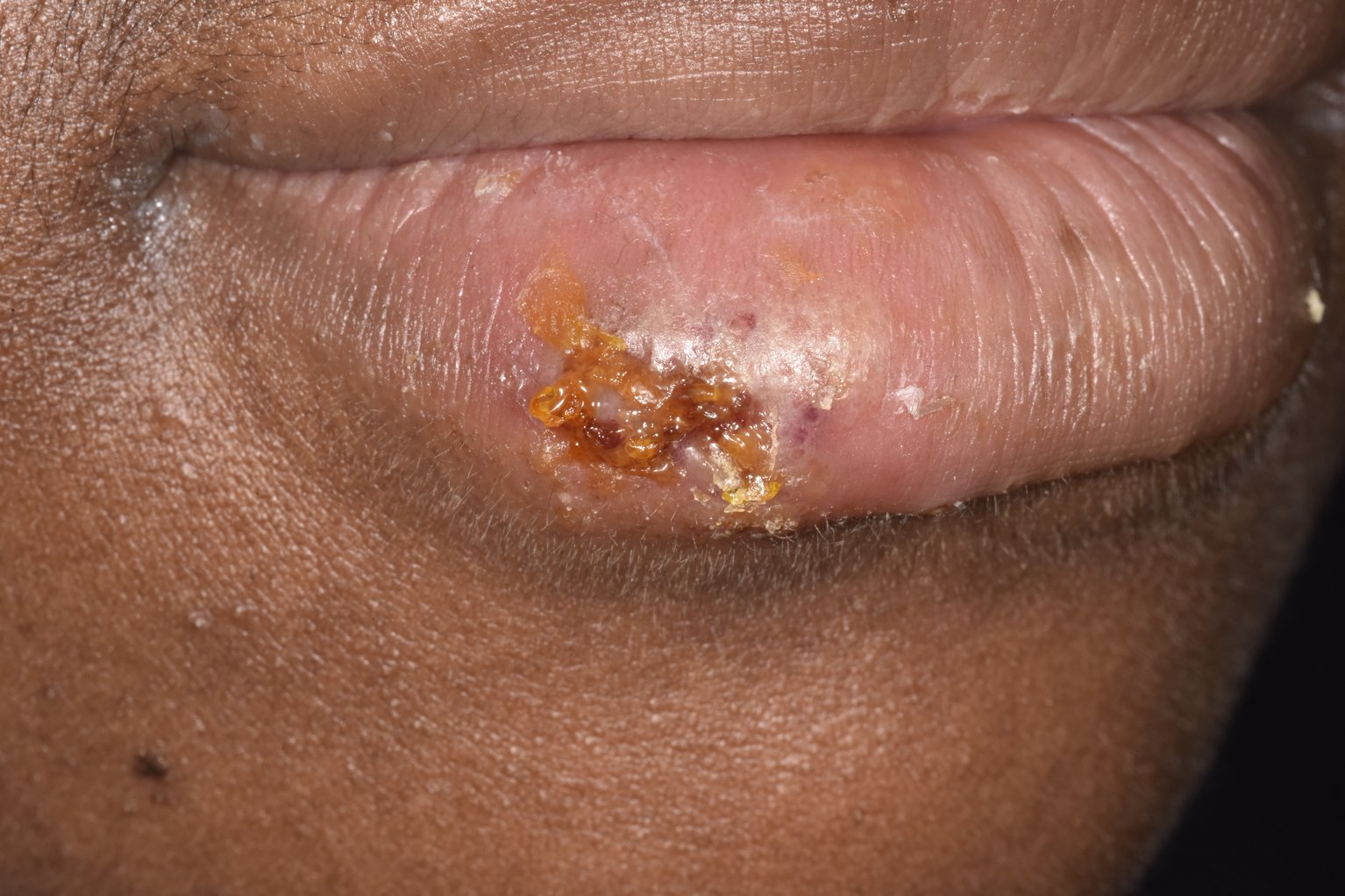Cold sores: Just the facts
Cold sores are blisters that develop around the lips and mouth caused by the herpes simplex virus. They are contagious, but usually clear up without treatment within 7 to 10 days.
Cold sores only develop if you have been infected with the herpes simplex virus, by kissing someone with cold sores or doing oral sex on someone with genital sores. You won’t usually have any symptoms immediately after coming into contact with herpes simplex, and a cold sore outbreak might not occur until some time later.
Once you have the virus, it stays in your body for the rest of your life. Some people might have a few cold sore outbreaks a year, others may only ever have one cold sore outbreak.
Spots around your face are really common, so just because you have a spot around your mouth does not mean that it’s a cold sore. It could be a spot, boil or even a mouth ulcer if the blister is inside the mouth.
How do I know if it’s a cold sore?
Cold sores often start with a tingling, itching or burning feeling, small fluid-filled blisters will then begin to appear after a couple of days. The blisters will then burst and crust over into a scab. They might be irritating and painful whilst they heal.


How long are cold sores contagious for?
Cold sores are contagious from the moment you feel them coming on until they are completely healed. If you think you might have, or are developing, a cold sore, avoid:
- kissing or doing oral sex until the sore is completely healed
- sharing creams, moisturisers and make-up with others
- sharing items that come into contact with the affected area, such as cutlery, vapes or cigarettes
Try not to touch a cold sore unless you are applying cream to the area and, wash your hands afterwards to make sure you don’t transmit the virus.
You should be especially careful not to kiss newborn babies, pregnant people and those with weaker immune systems such as individuals with HIV or those going through chemotherapy, as they are at higher risk of complications.
See a pharmacist if the cold sore hasn’t healed after 7 to 10 days, they will be able to recommend creams or patches to ease the pain or speed up the healing process. Cold sores aren’t usually serious, so you won’t need to contact a GP unless recommended by a pharmacist or if you are worried about your cold sore, for example if you have a weakened immune system or if the cold sore is particularly large or painful.
Find your local pharmacist here.
Find help in your local area
Find help in your local area
Find out what services are available to you in your area. Remember your school nurse is always there to give you confidential help and support.
Bradford
TEXT YOUR SCHOOL NURSE
You can always contact your school nurse by visiting them in school. Or alternatively you can text them on our mobile messaging service.
The text messaging working hours are Monday to Friday from 09:00am to 5:00pm. Your message will be seen during those hours after which we respond most quickly to messages that need urgent attention, and we aim to respond to all messages within 24 hours, Monday to Friday. If you need urgent help in the meantime, contact your doctor, visit a NHS walk-in centre or call NHS 111. If it is an emergency, dial 999 or visit A&E.
Find your school nurse

Services
Find out what other looking after your body support services are available to you in your area.




